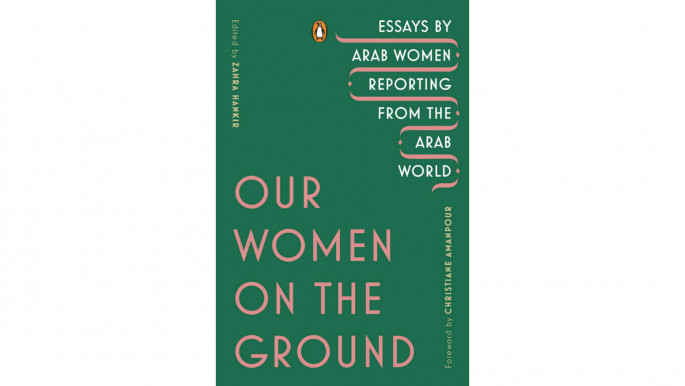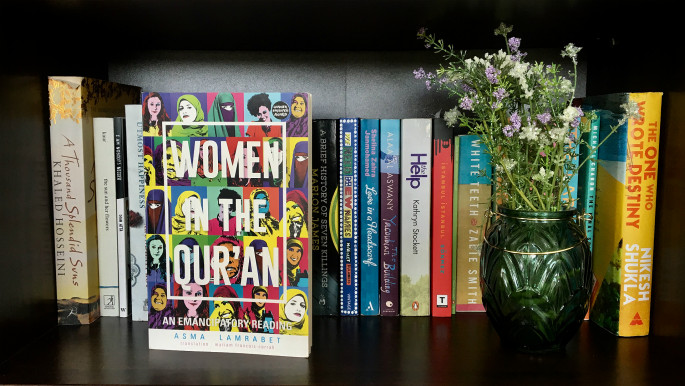Gendered Morality: Expanding the conceptual knowledge of gender in Islam
Ayubi explores this tension within Islamic philosophy and ethics in her new book Gendered Morality: Classical Islamic Ethics of the Self, Family, and Society.
Focusing on three key Muslim ethicists Muhammad Al-Ghazali (d.111), Nasir-ad Din Tusi (d. 1274) and Jalal ad-Din Davani (d. 1502), Ayubi looks at how all three constructed morality along gender lines and aims to offer a critical feminist philosophical approach to engaging with their texts.
Following in the footsteps of scholarship by Leila Ahmed, Fatima Mernissi, Amina wadud, Kecia Ali and others, Ayubi aims to expand our conceptual knowledge of gender in Islam.
 |
|
| Read more from The New Arab's Book Club: Our Women on the Ground: At last, recognising the heroism of Arab female journalists |
Contrary to the Quran and Islamic scriptural message, Al Ghazali, Dayani and Tusi all imagined morality in terms of gender hierarchy and were part of upholding the male scholarly elite establishment in their society.
As Ayubi shows when dealing with the ideal moral subject in the world, all three imagined their subject to be male as there was a presumption of male piety, rationality and intelligence which women were deficient in.
This is an important point to ponder as often feminists critiques of texts are sometimes characterised as being an obsession over language and semantics.
Ayubi moves the discussion on beyond language and demonstrates how women's ethical and moral agency is sidelined, ignored and dismissed by the male scholastic elite.
"While the ethicists viewed all matter as created equal by God and all human metaphysical souls as identical in substance and nature, not all individuals held the power to perfect their own soul – and this was particularly the case for women and inferior men," writes Ayubi.
The idea that women were less rational, overly emotional and spiritually weaker in Islamic philosophic traditions is heavily influenced by interactions with Greek philosophy and Mediterranean patriarchy.
 |
The idea that women were less rational, overly emotional and spiritually weaker in Islamic philosophic traditions is heavily influenced by interactions with Greek philosophy and Mediterranean patriarchy |  |
Indeed it is interesting how gendered assumption pass from one civilisation to another and it makes the case for wider engagement with Ayubi's book outside those concerned with Islamic gender morality.
The idea of a women being deficient means that for the ethicists women are less able to achieve the moral perfection that men are capable of obtaining, thus the texts are aimed at other men and it advices them on matters from spirituality to marriage.
Indeed the chapter on marriage in Ayubi's book was quite illuminating, while extensive checklists are offered to men on what to look for in a woman, little is offered for the women on what to looking for in a husband. Emphasis on a women's piety and dutifulness is considered key, but her intelligence is unimportant.
However inequality between men and women is not the only consideration in the book, Ayubi also looks at how the ethicists constructed hierarchy and inequality within masculinity.
For the three scholars male elites were superior to male non-elites and by logical extension more masculine. The relationship between elite and non-elite men is based on hierarchy and that must be maintained, elite men are also considered more capable of developing moral and spiritual enlightenment than other men.
By constructing morality and moral thinking along these lines the ethicists ignore the possibility of the radical moral message offered by Islam.
 |
| Read more from The New Arab's Book Club: Women in the Qur'an: 'Reappropriating' Muslim women's destinies |
It's important to pause here and considered the implication of Ayubi's argument. Islam is an emancipatory force that faces challenges from its own traditions developed long after the time of the Prophet and the revealing of the Quran.
This is likely to make uncomfortable reading for many as Gendered Morality comes to us at a time when there are huge rifts and debates among Muslim communities in the West. Especially with the emerging chasm between neo-traditionalists, Salafists and Muslim social justice activists.
Indeed some will read this book as part of an assault on Islamic tradition and part of the 'cultural war' taking place in the United States. But that would be an unfair way to judge the text as it would classify Ayubi's argument as something it isn't.
Ayubi is not arguing for the abandoning of Islamic tradition nor is she arguing for dismissing the teachings of the three scholars. She does not deny the possibility that profound spiritual and moral insight can be obtained from them, indeed she thinks they offer us much.
Rather what Ayubi is offering is a way of dealing with the texts without dismissing them through a critical philosophical and feministic reading. This is crucial as it will open up spiritual insight and Islamic development in the 21st century to everyone and not just a select few.
Only by doing this can the tension between the prophetic teaching, the Quran and Muslim ethics be resolved.
Usman Butt is a multimedia television researcher, filmmaker and writer based in London. Usman read International Relations and Arabic Language at the University of Westminster and completed a Master of Arts in Palestine Studies at the University of Exeter.




